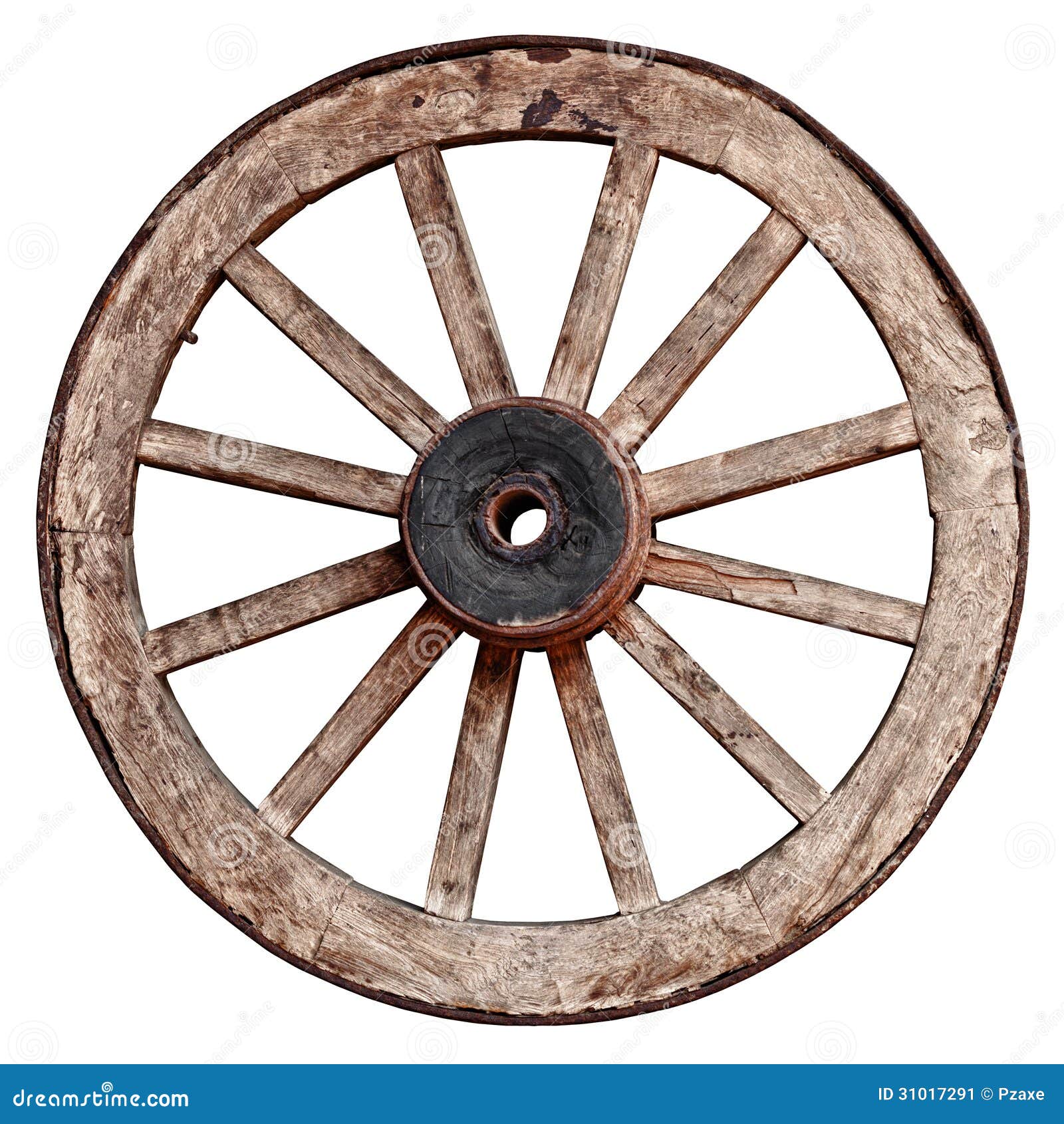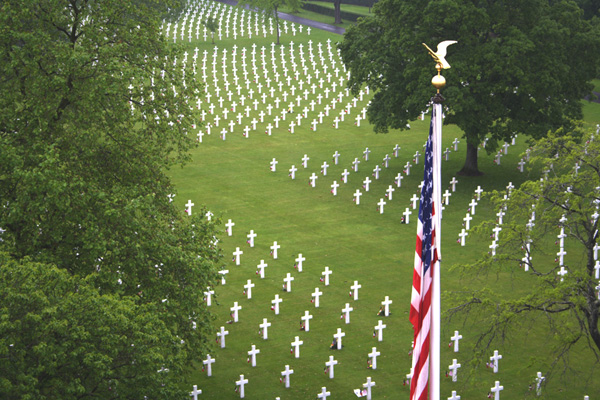The ‘Wheel’ represents the circle in which the whole world moves on. The process, how it seems to be presented by unreal cities is nothing but an illusion. Eliot shows that there is no progress, only change that nonetheless does not change anything. A 'wheel' is characterized by having a center around which it is turning all the time. If one relates the poem to Yeat's "The Second Coming" http://www.poetryfoundation.org/poem/172062 the 'wheel' can be compared to a 'gyre'. The more the gyre is turning, the more it gets away from its center. If the center was nature or a just a specific point in the past, where mankind and nature were more closely connected, it could be interpreted as constantly moving away from 'realness'. In a gyre it is impossible to move to the center; one is constantly pushed towards the outside. The same in a wheel. What is turning on the outside and constantly moving on is disconnected from the center, that stays where it is.

However, the wheel and its center always have to move the same way. Without synchrony the wheel does not work. In a gyre the cycles become bigger and bigger, but still there needs to be synchrony. Modern time in the Waste Land seems to be moving too fast and like a gyre destroying something or approaching 'apocalypse'. The wheel turning faster as its center destroys the synchrony and harmony and hence makes it unreal. So modern time with its unreal cities could be moving on without a center, without a basis or a close connection to something constant. Therefore Eliot mentions the ring, where crowds of people are walking around. Basically like a wheel without a center. Maybe just because they lost the connection to the nature, the center of human nature. In comparison to a ring, a wheel has spokes that lead to the center. Spokes that make a connection and therefore make it real.
‘Crowds of people, walking round in a ring’ alludes to ghostly figures created by an unreal city. For example in an industrialized world, in big cities, where people go to work every day and just follow the crowd. Cities, civilization and culture pretend to lead people somewhere and to make them move on. They think they have a destination. However, they do not move on, but stay in that circle.

The ‘Wheel’ capitalized stands for a higher power that makes the system move. A wheel literally standing for a new invention and for progress does not apply in this context, it stands for something higher or even godlike.
The clairvoyante could therefore just stand for mankind’s predetermined destiny and the ‘one-eyed merchant’ stands for another aspect of an unreal city. In the modern world, due to the consequences of the industrialization, there is a big difference between rural and urban areas. Cities stand for agglomeration of people, capital and products. The ‘one-eyed merchant’ however, seems not to see the ‘whole thing’. He seems to be blinded by the illusion of the unreal cities and the modern world. This also refers to Eliot’s rejection of a modern world. In a city, people just follow the mainstream and believe in non-existing things, they are not alive and conscious, but just ghostly figures.

Furthermore, the ‘one-eyed merchant’ carries something on his back, which the clairvoyante cannot see. It is a blank card. It seems like a burden for humanity that men must carry, especially the one-eyed merchant, as a representative of a ‘modern urban man’. If the clairvoyante cannot see it, it might contradict the fact that the future is pre-determined and hence the ‘Wheel’ can be interpreted differently. The blank card could mean that there is still a possibility to change the future and that people are able to act. The ‘Wheel’ itself is just turning around its center, but seen as a whole the ‘Wheel’ could be moving on.




 The Hofgarten in Munich is used by Eliot in order to represent the downfall of this political structure and also represents the motif of the unreal city. Due to its downfall the Hofgarten also stands for the motif of a ghost, which once was alive in the past, but now its existence is present even if it does not really exist anymore. An aerial photo of the Hofgarten shows its baroque architecture, very symmetrical, with a huge man-made garden. It still is an unreal, artificial and man-made place. The complete opposite of a waste land of disorder, industry, pollution and grotesqueness. However, going to the Hofgarten is a travel to the past. Eliot mentioning the sunlight seems to show a longing for the past or just a rejection of the fast changing modern world.
The Hofgarten in Munich is used by Eliot in order to represent the downfall of this political structure and also represents the motif of the unreal city. Due to its downfall the Hofgarten also stands for the motif of a ghost, which once was alive in the past, but now its existence is present even if it does not really exist anymore. An aerial photo of the Hofgarten shows its baroque architecture, very symmetrical, with a huge man-made garden. It still is an unreal, artificial and man-made place. The complete opposite of a waste land of disorder, industry, pollution and grotesqueness. However, going to the Hofgarten is a travel to the past. Eliot mentioning the sunlight seems to show a longing for the past or just a rejection of the fast changing modern world.

